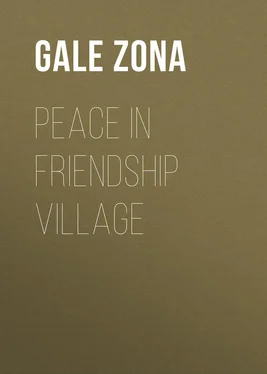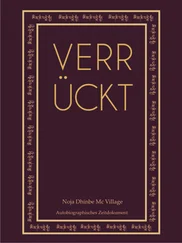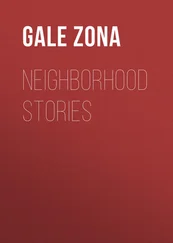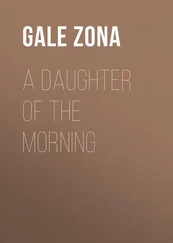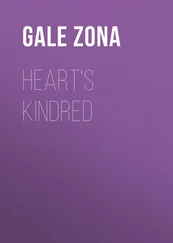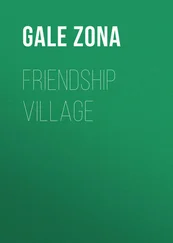Zona Gale - Peace in Friendship Village
Здесь есть возможность читать онлайн «Zona Gale - Peace in Friendship Village» — ознакомительный отрывок электронной книги совершенно бесплатно, а после прочтения отрывка купить полную версию. В некоторых случаях можно слушать аудио, скачать через торрент в формате fb2 и присутствует краткое содержание. Жанр: foreign_antique, foreign_prose, на английском языке. Описание произведения, (предисловие) а так же отзывы посетителей доступны на портале библиотеки ЛибКат.
- Название:Peace in Friendship Village
- Автор:
- Жанр:
- Год:неизвестен
- ISBN:нет данных
- Рейтинг книги:5 / 5. Голосов: 1
-
Избранное:Добавить в избранное
- Отзывы:
-
Ваша оценка:
- 100
- 1
- 2
- 3
- 4
- 5
Peace in Friendship Village: краткое содержание, описание и аннотация
Предлагаем к чтению аннотацию, описание, краткое содержание или предисловие (зависит от того, что написал сам автор книги «Peace in Friendship Village»). Если вы не нашли необходимую информацию о книге — напишите в комментариях, мы постараемся отыскать её.
Peace in Friendship Village — читать онлайн ознакомительный отрывок
Ниже представлен текст книги, разбитый по страницам. Система сохранения места последней прочитанной страницы, позволяет с удобством читать онлайн бесплатно книгу «Peace in Friendship Village», без необходимости каждый раз заново искать на чём Вы остановились. Поставьте закладку, и сможете в любой момент перейти на страницу, на которой закончили чтение.
Интервал:
Закладка:
May came, and we wondered. Then one day there was a letter in a strange writing. Jeffro was in the hospital, it said, and he wanted to send word that he was all right and would send a letter himself in a little while. That was all that it told us.
Everybody in Friendship Village remembers that spring, because it was the year the bank closed down. Nobody knew the reason. Some day, when the world gets really to going, one of the things they'll read about in musty books and marvel over will be the things we call panics. They'll know then that, put simple, it's just another name for somebody's greed, dressed up becoming as Conditions. We're beginning now to look at the quality of the clothes Conditions dress in, and we're finding them pretty poor quality sometimes, and cut awful old-fashioned, and the dye rubs off. But in those days, all we knew was that the bank had "suspended payment."
"But what's that mean – 'suspended payment?'" I says to Silas Sykes that told me. "You can't suspend your debts, can you? I never could."
"It means," Silas says, "that they'll never pay a cent on the dollar. That's what it means."
"But," I says, "I don't understand. If I owe you ten dollars, I can't put down my curtain and suspend that payment, can I?"
"Well, you ain't banks," says Silas. "And banks is."
I was walking away and thinking it over, when I stopped stock-still in the street. The National Bank – it was the National Bank that Jeffro had his thirty-seven dollars in.
I felt as if I had to do something for him, then and there. And that afternoon I took my trowel and went up to his little place, and thought I'd dig round some in the garden that was coming up, gay as a button.
When I stepped inside the gate, I looked up at the house, and I saw the front door was open. "Land," I thought, "I hope they haven't stole what little he had in there, too." And I stepped up to the door.
In the wooden chair in the middle of the floor sat Jeffro. His hat was pulled down over his eyes, his legs were thrust out in front of him, one of his arms was hanging down, and the other one was in a white sling.
"Mr. Jeffro – Mr. Jeffro!" I says. "Oh – what's the matter?"
He looked up, and his face never changed at sight of me, nor he never got up or moved. And his look – well, it wasn't the look of Jeffro any more than feathers have the look of a bird. But one thing I knew about that look – he was hungry. I could tell that look anywhere, because I've been hungry myself, with no food coming from anywheres.
I flew to the cupboard where I'd put in the few things, and in a jiffy I had some soup heating and a box of crackers opened. I brought the bowl to the table, all steaming and good-smelling, and he drew up there without a word and ate with his hat on – ate like I never saw a man eat before.
When he got through: "Tell me about it, Mr. Jeffro," I says. And he told me.
It wasn't anything very new. Jeffro had been in the mines since the first of November, and the first of January the strike had begun – the strike against a situation that Jeffro drew for me that afternoon, telling it without any particular heat, but just plain and quiet. He told me how he had gone with some of the men to the house of one of the owners to talk of settlement.
"I spoke out to him once," said Jeffro. "I said: 'Will you tell me how this is? They can not make me understand. America gives me free all the things that I did not expect: The fire-engine, it takes no pay. My little boy's school costs me not anything. When I come to this state I have no passport to get, and they did not search me at the frontier. All this is very free. But when we want more bread, and we are willing to work for it all day long with our hands, you will not let us have more, even then. Even when we pay with work. Will you tell me how this is?'"
Of all that the man had said to him, kindly enough, Jeffro understood nothing. And he could speak the language, while many of the men in the mines could not say one word of English.
"But they could strike in Russian and Polish and Lithuanian," Jeffro said, "and they did."
Then came the soldiers. Jeffro told me about that.
"Ve vere standing there outside the Angel mine," he said, "to see that nobody vent to vork and spoiled our hopes, ven somebody cried out: 'The soldiers!' Many of the men ran – I did not know vy. Here was some of the United States army. I had never seen any of the army before. I hurried toward them, my cap in my hand. I saw their fine uniforms, their fine horses, this army that was kept to protect me, a citizen, and vich I did not have to pay. I stood bowing. My heart felt good. They had come to help us then – free! And then somebody cried. 'He's one of the damned, disorderly picketers. Arrest him!' And they did; and nothing I could say vould make them understand. I vas in jail four days, but all those days I thought it vas a mistake. I smiled to think how sorry they vould be ven they found out they had arrested von they were paid to protect – free."
He told me how there went on the days, the weeks, of the strike; hunger, cold; the militia everywhere. The little that Jeffro had earned was spent, dime by dime. He stayed on, hoping for the settlement, certain that it would all be right as soon as everybody "understood."
"It vas this vay," he said laboriously. "Mine-owners and money and militia vere here. Over here vere the men. Vrong vas done on both sides – different kinds of vrong. The sides could not speak together clear. No von understood no von."
Then a miner had resisted an officer who tried to arrest him, the officer fired, and Jeffro had the bullet in his shoulder, and had been locked up for being "implicated" – "I don't know yet vat they mean by that long vord," Jeffro said – and had been taken to the courthouse and later to the hospital. On his discharge, eight days ago, he had started to walk home to Friendship Village.
"To-morrow," Jeffro said, "I vill get out from the bank my money – I have not touched that – and send to her vat I have. It may be she has saved a little bit. Somehow she vill come. To-morrow I vill get it, as soon as the bank is open."
I knew I had to tell him – I knew I had to tell him right then. "Mr. Jeffro – Mr. Jeffro," I said, "you can't. You can't get your money. The bank's failed."
He looked at me, not understanding.
"Vat is that?" he said. "'Failed' – for a bank?"
"I don't know what it is," I told him. "It's something banks can do. You never can tell when. And this one has done it."
"But," he cried, "vat do you mean? It vas the National Bank! This nation can not fail!"
"This much of it has," I says. "The bank's shut up tight. Everybody that had money in it has lost it – unless maybe they pay back to each one just a little bit."
He stood up then and looked at me as if I were strange. "Then this too," he says, "can happen in America. And the things I see all winter – the soldiers to shoot you down?"
"No, no," I says. "You mustn't think – "
"I do not think," says Jeffro. "I know. I have seen. I am there ven it happens. And more that I did not tell. In March a man came to me ven I was hungry, and tried to buy my vote. Ven I understood, I struck him in his face, just the same as if I have von. But I saw men sell their vote, and laugh at it. And now I understand. You throw dust in our eyes, free fire-engines, free letter-carriers, free this and free that, and all the time somebody must be laughing somewhere at how it makes us fools. I hate America. Being free here, it is a lie!"
And me, I set still, trying to think. I set looking at the bright-colored poster that Jeffro had found on his cow-shed in the old country, and I was trying to think. I knew that a great deal of what he'd said was true. I knew that folks all over the country were waking up and getting to know that it was true. And yet I knew that it wasn't all the truth. That there was more, and that something had got to make him know. But what was going to do that?
Читать дальшеИнтервал:
Закладка:
Похожие книги на «Peace in Friendship Village»
Представляем Вашему вниманию похожие книги на «Peace in Friendship Village» списком для выбора. Мы отобрали схожую по названию и смыслу литературу в надежде предоставить читателям больше вариантов отыскать новые, интересные, ещё непрочитанные произведения.
Обсуждение, отзывы о книге «Peace in Friendship Village» и просто собственные мнения читателей. Оставьте ваши комментарии, напишите, что Вы думаете о произведении, его смысле или главных героях. Укажите что конкретно понравилось, а что нет, и почему Вы так считаете.
